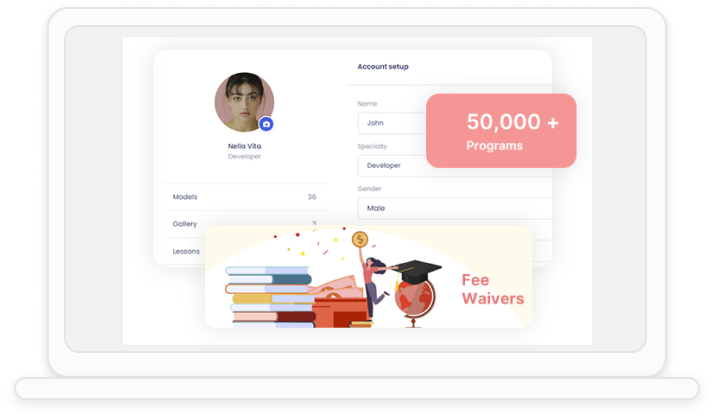Study in Canada

A hassle-free visa process, affordable tuition fees, and highly-ranked universities are some of the many reasons why Canada is the most sought-after study-abroad destination.
Study in Australia

Every year over 637,000 International students choose to study in Australia for a variety of reasons such as the availability of several undergraduate, postgraduate, and part-time work programs.
-
Universities in Canada
-
Universities in UK
-
Universities in USA
-
Universities in Australia
-
Universities in Germany
-
Universities in Ireland
-
Universities in France
-
Institutions in New Zealand
Universities in Canada
Universities in UK
Universities in USA
Universities in Australia
Universities in Germany
- EBS University
- Berlin School of Business and Innovation
- University of Europe for Applied Sciences
- Munich Business School
- GISMA Business School Berlin
- EU Business School Munich
- New European College
- FOM University of Applied Sciences for Economics and Management
- Lancaster University Leipzig
- XU Exponential University
Universities in Ireland
- University of Limerick
- CCT College Dublin
- Holmes Institute Dublin
- NCG Holding Ltd Dublin
- Maynooth University
- Technological University Dublin Aungier Street Campus
- Technological University Dublin Blanchardstown Campus
- Technological University Dublin Bolton Street Campus
- Technological University Dublin Grangegorman Campus
- Technological University Dublin Tallaght Campus
Universities in France
- On-campus courses
- Hybrid courses
- Online courses
Featured programs
Business
Administration
Certification course from IU Germany
Bachelor's Degree
Know what exams and tests you need for admission and advancement.

Things to do before going abroad for studies








































































